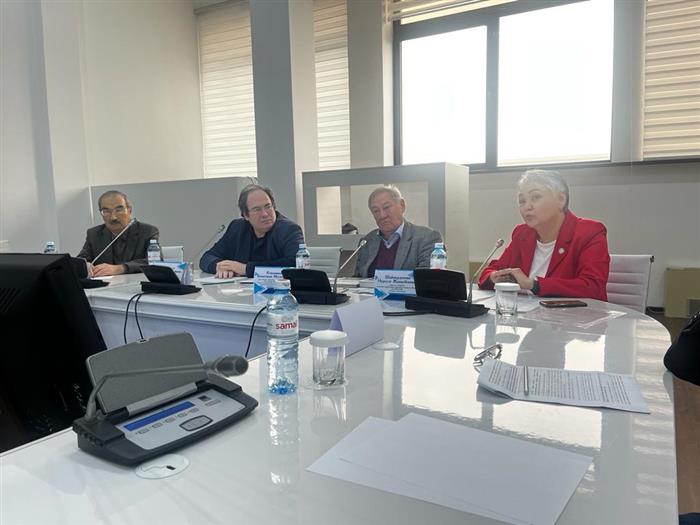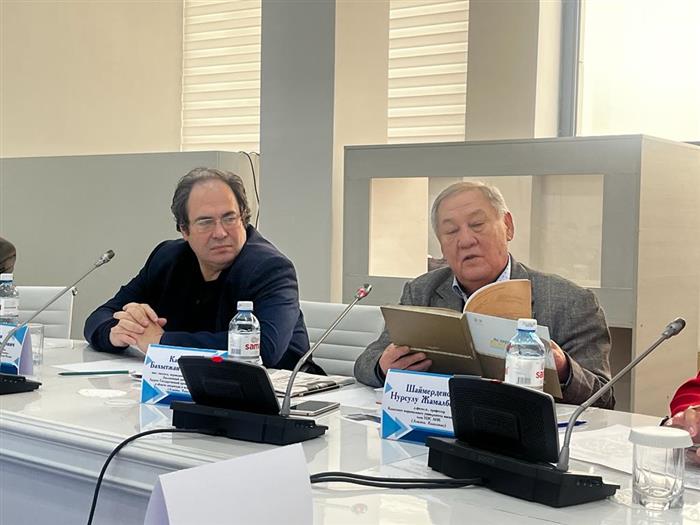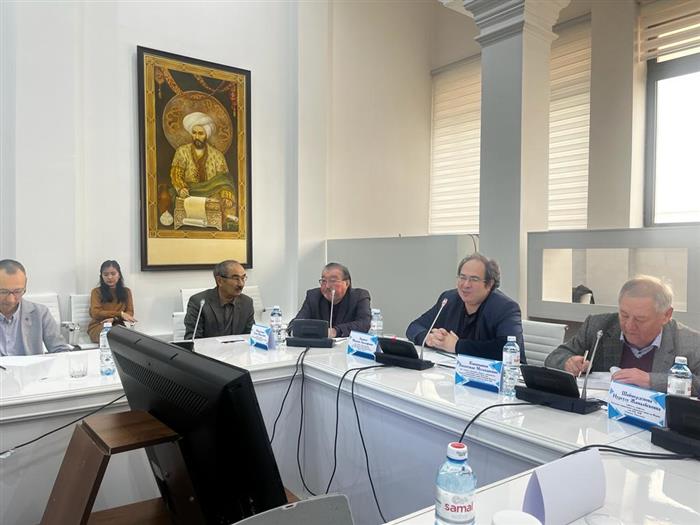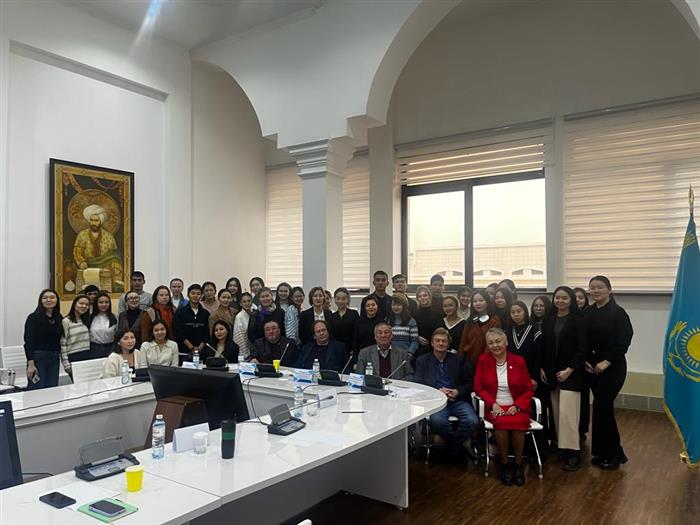The word at the junction of epochs
On November 21, a leadership lecture "The fate of a writer in the post-Soviet space" was held in the Library of the Al-Farabi Kazakh National University. The meeting was organized by the Institute of Translation and the Department of Russian Philology and World Literature of Al-Farabi Kazakh National University.
The lecturers of the open creative meeting were Russian poet, novelist, critic Maxim Zamshev and Kazakh poet, novelist and translator Bakhytzhan Kanapyanov. Bakhytzhan Kanapyanov and Maxim Zamshev caught the collapse of the Soviet Union by publishing writers. The revolution of the 90s completely changed the model not only of human destiny, but also of a writer's career. The guests told about what that time was like for them, as well as about the aesthetics of post-Soviet prose, about the synthetism of modern literature, about the writers of Russia and Kazakhstan.
The meeting was hosted by Doctor of Philology, writer and translator Aslan Zhaksylykov and Doctor of Philology, Professor of the Department of Russian Philology and World Literature of Al–Farabi Kazakh National University, Nursultan Shaimerdenova.
Among the guests was the Executive Director of the Institute of Translation Evgeny Reznichenko, who in his welcoming speech spoke about the activities and projects of the Institute. Kazakh poet, journalist and editor Ulykbek Esdaulet also shared his creative experience at the junction of epochs.
The participants of the classroom meeting were colleagues of writers, teachers of literary departments of universities, as well as students, undergraduates and doctoral students of Al-Farabi Kazakh National University. The event was held in a hybrid format, so listeners from other cities also had the opportunity to participate. Students and teachers of the Kazakhstan branch of Lomonosov Moscow State University, E. Buketov Karaganda State University and others showed interest in the meeting.
During the meeting, the speakers touched upon the topics of the difference in writer's needs in the Soviet and post-Soviet times, the rapprochement of peoples and the personality of the writer within the changing social and political agendas.












